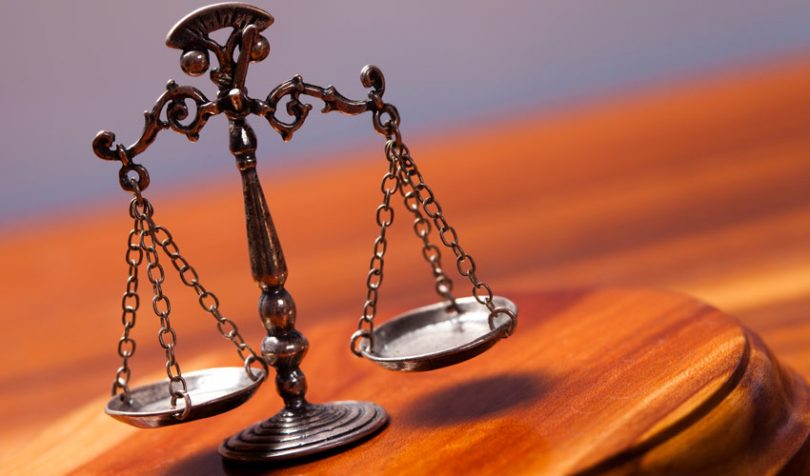In November at the Blockchain in Insurance Summit in Philadelphia, a senior partner of DLA Piper Mark Radcliffe talked about some of blockchain’s many legal issues, particularly those surrounding smart contracts.
“If you read industry publications there’s a lot of what I would call technical utopianism, which frequently results in wishful thinking about the legal issues,” said Radcliffe. “In particular there are people who believe that smart contracts are going to replace lawyers. What I say to both lawyers and non-legal audiences is: ‘No it’s not going to replace lawyers, it is the lawyers’ Full Employment Act for a decade because of the new issues raised.'”
Human error
At issue is determining who is liable when smart contracts go wrong.
In the classic textbook “Code Complete” by Steve McConnell, the author states that there are typically 15-50 errors per 1000 lines of code. Meanwhile, the National University of Singapore found that almost half of Ethereum smart contracts have bugs.
So there’s likely to be plenty of litigation to keep lawyers gainfully employed.
The most famous Ethereum smart contract bug was TheDAO. TheDAO (DAO is an abbreviation for a new class of organizations, Decentralized Autonomous Organization) was a venture-capital fund that raised capital to fund projects on the Ethereum ecosystem. As a result of bugs in a smart contract, $50 million in funds were siphoned off by an unidentified hacker.
TheDAO by its nature was entirely virtual and did not have general partners, limited partners or officers so the investors did not have anyone to which they could appeal to correct the error.
The Ethereum community was faced with a difficult decision. After internal discussion, a group of developers proposed a change to the Ethereum blockchain in the form of a software update, a “fork”. They sent the software update to the individuals and companies who ran the nodes on the Ethereum network. The vast majority of the nodes accepted the software update and returned the ether from TheDAO to the investor’s original wallets.
However, a small group of nodes stated that “Code is Law” and refused to adopt the software update. These nodes became a “fork” of the Ethereum blockchain called Ethereum Classic.
More recently, a bug in the Parity wallet “froze” ether worth $136M at the time. The only way to fix the bug was to, once again, fork the Ethereum blockchain, but the community decided not to fork the blockchain to resolve this problem.
Legal vacuum
The liability of individual developers or development companies for mistakes in software code, particularly the software code implementing “smart contracts,” is not clear. Most traditional development software development relationships are governed by contract which severely limits the liability of the developer for errors (just read the End User License Agreement for Windows).
The liability for mistakes in the software implementing “smart contracts” on public blockchains could be governed by contract (if licensed), but the enforcement of such contracts might be difficult for a number of legal reasons. Blockchains run by consortia (which are generally permissioned and “private”) can deal with these issues by contracts among the participants in the consortia.
TheDAO is an example of how core protocol developers can become embroiled in governance issues, even though TheDAO bug was in a smart contract sitting atop the protocol.
In June, Angela Walch, an associate professor at St. Mary University School of Law and a Research Fellow at UCL in London, recommended that core developers of public blockchains should be liable as “fiduciaries” to users of the blockchain. Radcliffe disagrees.
“Fiduciaries are people who have a legal duty to certain other people. It’s the highest duty imposed by law. A classic example of a fiduciary is an officer or director of a corporation and his duty to the stockholders,” explained Radcliffe.
“Walch’s suggestion would be an unprecedented use of fiduciary law, and it suffers from a number of fairly basic problems. Who are the core developers? To whom do they owe a fiduciary duty? And what is the scope of those duties? This proposal could discourage developers from participating in the development of blockchain and is an example of a premature attempt to regulate the industry which could be very damaging to the industry.”
Although Walch’s aim was to encourage core developers to take greater care in making programming decisions, the ambiguity of the obligation and the potential for significant monetary liability has a high possibility of discouraging developers from contributing to blockchain projects, particularly those based on open source software, according to Radcliffe.
He is very familiar with legal issues in open source software and has been recognized as a leading lawyer in the open-source software movement since its early days. He’s general counsel to both the Open Source Initiative and serves on the Apache Software Foundation Legal Committee on a pro bono basis. He also works for larger open source foundations such as the OpenStack Foundation and the Linux Foundation on a traditional fee basis.
Another example of the legal vacuum is how to classify cryptocurrencies and digital assets for legal purposes. For example, for insurance purposes is cryptocurrency “money” or “property”? In a recent Ohio case for an insurance claim under a home owner’s policy relating to $19,000 of stolen Bitcoin from an online account, the judge treated the cryptocurrency as “property” not “money”. In that particular insurance policy, there was a claim limit of $200 for money and $20,000 for “property”. The judge found that the insurer needed to reimburse the home owner for the entire $19,000 loss.
Picking up the baton
In an October speech, Commodity Futures Trading Commissioner Brian Quintenz raised the issue of liability for blockchain software developers in a different context. The CFTC regulates “prediction contracts” and Quintenz discussed who might be liable for ensuring that a prediction contract on blockchain complies with CFTC regulations. He considered the miners, the users, the core developers, and settled on the smart contract developers.
It wasn’t cut and dry. “The developers of the code could claim that they merely created the protocol and therefore have no control over whether and how users choose to use it once it is part of the public domain,” said Quintenz. He continued: “In my view, this analysis misses the mark. Instead, I think the appropriate question is whether these code developers could reasonably foresee, at the time they created the code, that it would likely be used by U.S. persons in a manner violative of CFTC regulations.”
Radcliffe’s response: “This is the equivalent of making the automobile manufacturers liable because the automobile was used in a bank robbery.”
How it’s likely to play out for smart contracts
Many blockchain enthusiasts try to implement an entire transaction in the code of “smart contracts” but as Radcliffe noted this approach leaves open several legal issues.
He believes that in many cases, at least for the next few years, there will be a framework agreement which is more like a standard contract. However, some of the terms will be implemented in software through a “smart contract”. For example, a framework agreement would cover issues such as liability and indemnity for coding errors as well as dispute resolution (arbitration, jurisdiction, governing law, and venue) but the “smart contract” would govern how the transaction “works” including issues like payment, acceptance and late fees.
Multiple companies and consortia are attempting to implement this model. For example, Accord is a standards body. Accord founder Clause and The Agreements Network are implementing that approach. Other groups working on this problem include Open Law and Integra Ledger.
Because of the technical nature of blockchain, however, Radcliffe believes the courts are not likely to be the best place to adjudicate smart contract disputes. “These issues are complex and require understanding of the technology. So I think arbitration is a much better means of resolving disputes because the parties can select arbitrators who actually have the technical expertise that you need.”
However, arbitration is likely to cover only a small number of the disputes relating to “smart contracts” and there’s likely to be plenty of court litigation. Right now, blockchain indeed looks like more of an opportunity than a threat for the legal profession.
This is essentially an opinion piece. Mark Radcliffe requested significant edits to the article most of which were accepted because of the legal topic and the coverage of his conference speech.
Disclaimer: This article should not be interpreted as legal advice. Always consult your own lawyer.






